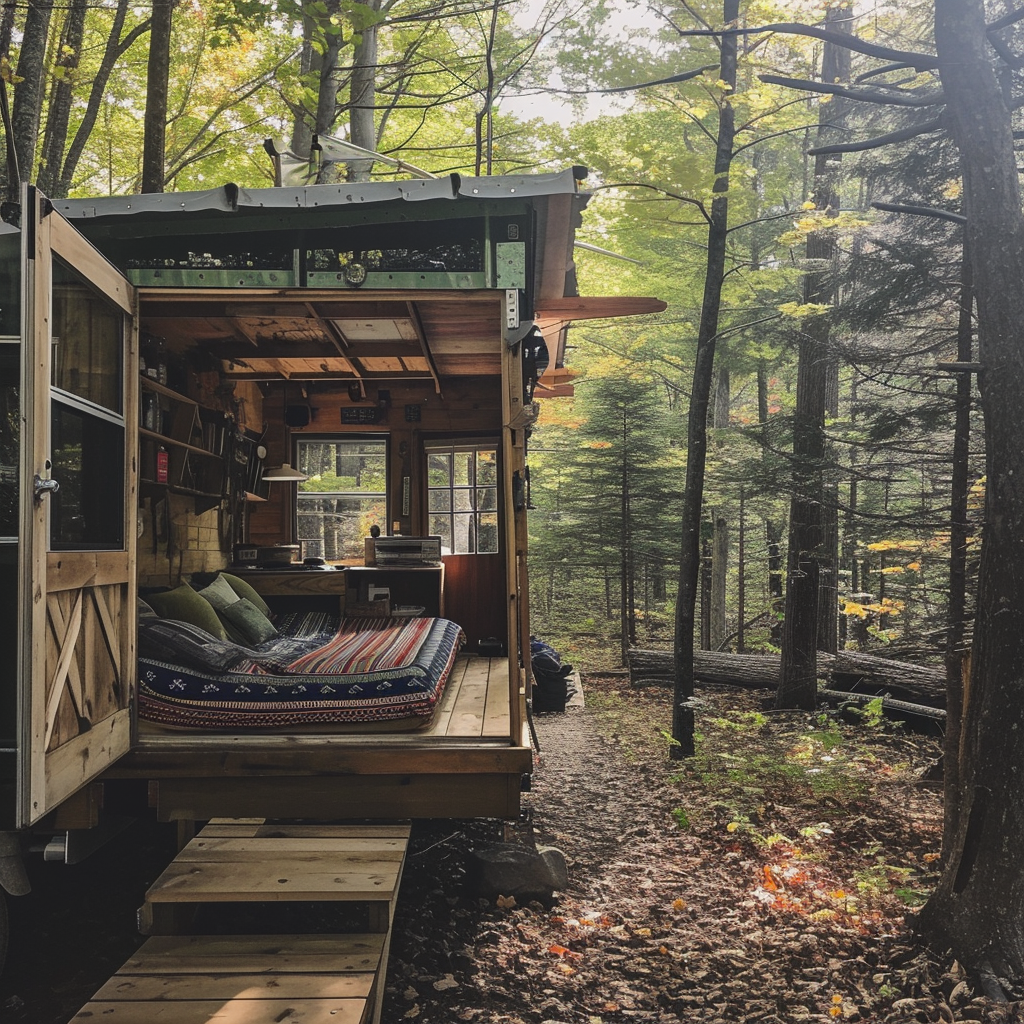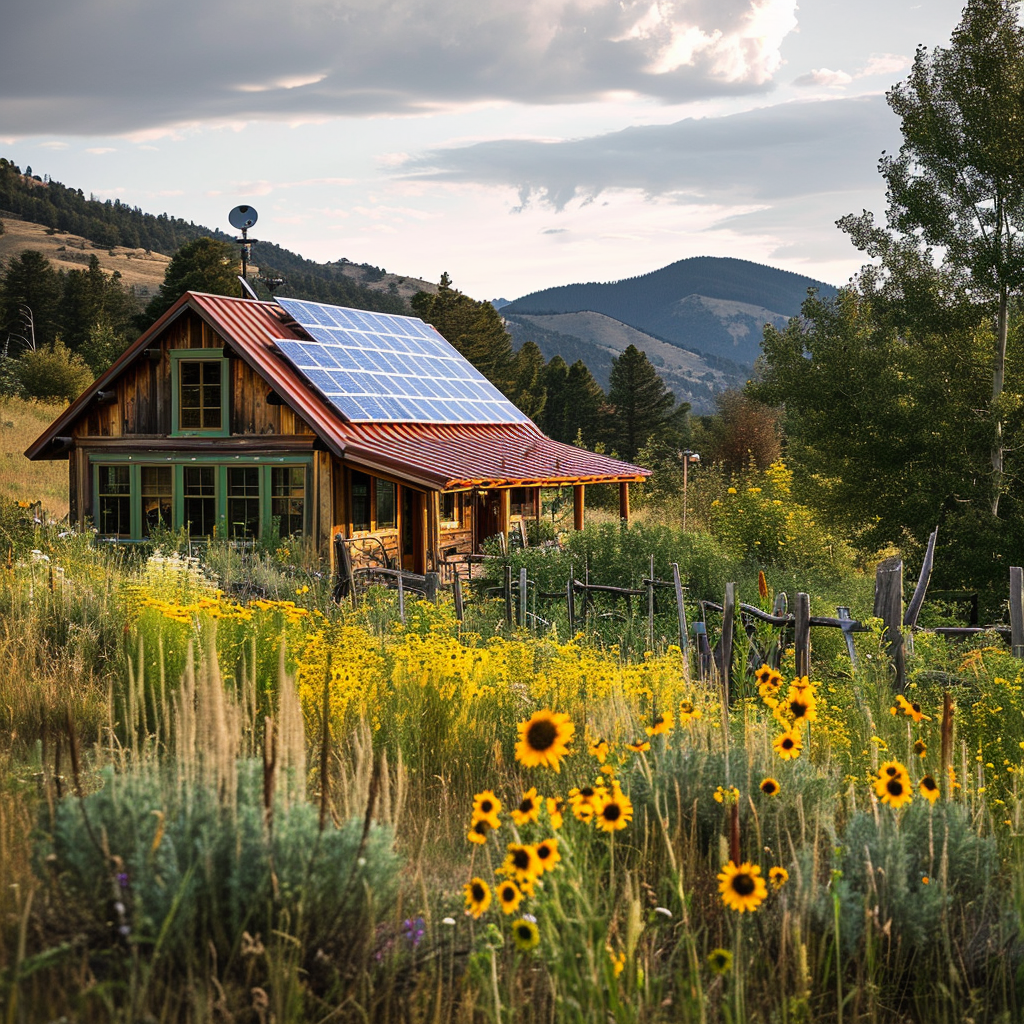So, have you ever heard about living off-grid? It’s quite an interesting concept, don’t you think? Living off-grid means that you are not connected to the traditional power grid and rely entirely on self-sufficient sources of energy, such as solar panels or wind turbines. It’s a lifestyle that appeals to those seeking a more sustainable and independent way of living. But have you ever considered the advantages of on-grid living?
Well, in this article “Why On-Grid Is Better Than Off-Grid Living?”, we’ll be exploring the advantages of on-grid living in more detail. You see, living on-grid means that you are connected to the main electricity grid, which comes with its own set of benefits. Not only do you have a constant and reliable source of power, but you also have access to all the amenities that come with it. From heating and cooling systems to household appliances, being on-grid allows you to enjoy modern conveniences without any interruptions.
But that’s not all! Another advantage of on-grid living is the ability to sell excess energy back to the grid. If you have your own renewable energy sources, such as solar panels, you can generate more energy than you consume during certain periods. Instead of wasting that excess energy, you have the option to sell it back to the grid, allowing you to not only save money on your electricity bills but also contribute to a greener and more sustainable future.
So, as you can see, on-grid living offers a range of advantages that make it a compelling choice for many. From having a reliable source of power to the option of selling excess energy, living on-grid provides convenience, sustainability, and even financial benefits. But wait, there’s more to learn about this fascinating topic. Keep reading to discover even more about the advantages of on-grid living and how it can positively impact your life.
Introduction
Living off-grid has gained popularity in recent years as a sustainable and self-sufficient way of life. However, on-grid living offers a multitude of advantages that make it a more attractive option for many individuals and families. In this article, we will explore the various benefits of on-grid living, ranging from access to basic utilities to convenience, cost savings, community support, environmental friendliness, technological advancements, and stability.
Access to Basic Utilities
Electricity supply
One of the primary advantages of on-grid living is the reliable and continuous supply of electricity. Being connected to the grid ensures that you have access to electricity at all times, without the need for backup power sources or generators. This uninterrupted power supply is crucial for modern living, as it allows you to use appliances, charge devices, and carry out daily activities without any interruptions.
Clean water availability
On-grid living also provides access to clean and safe water. Municipal water systems ensure that you have access to potable water for drinking, cooking, and other household needs. This eliminates the need to rely on alternative water sources or invest in expensive water treatment systems, ensuring convenience and peace of mind.
Waste management services
Living on the grid also means that you have access to waste management services provided by local authorities. Regular garbage collection and disposal services ensure that your waste is taken care of in a responsible and environmentally friendly manner. This eliminates the need to find alternative waste disposal methods and reduces the risk of pollution or health hazards.
Reliable and Stable Power Source
Continuous electricity
One of the biggest advantages of on-grid living is the continuous supply of electricity. Unlike off-grid systems that rely on stored power or renewable energy sources, being connected to the grid ensures that you have a constant and reliable power source. This is especially important in situations where a consistent power supply is needed, such as running essential medical equipment or maintaining a comfortable living environment.
Reduced dependency on backup generators
Another advantage of on-grid living is the reduced dependency on backup generators. While off-grid systems often require the use of generators during periods of low renewable energy production or system failures, on-grid living eliminates the need for these backup power sources. This not only saves you the hassle of maintaining and fueling generators but also reduces noise and air pollution.
Consistent power supply for daily needs
Living on the grid ensures that you have a consistent power supply for all your daily needs. From cooking meals to charging devices and running appliances, being connected to the grid provides the convenience of having electricity readily available at all times. This leads to smoother and more efficient functioning of daily activities, making your life easier and more comfortable.

Convenience and Comfort
Effortless access to electricity
On-grid living offers effortless access to electricity. With a simple flip of a switch, you can turn on lights, power devices, and operate various appliances. This convenience eliminates the need to rely on alternative power sources or spend time and effort manually generating electricity. You can enjoy a hassle-free lifestyle where electricity is readily available for all your needs.
Modern appliances and gadgets
Being connected to the grid allows you to fully utilize modern appliances and gadgets. From energy-efficient refrigerators and air conditioners to smart home devices and entertainment systems, on-grid living opens up a world of possibilities in terms of technological advancements. You can enjoy the latest innovations and technologies without worrying about compatibility or power limitations.
Smooth functioning of daily activities
Living on the grid ensures the smooth functioning of daily activities. From cooking and cleaning to doing laundry and working from home, a reliable and uninterrupted power supply makes these tasks easier and more efficient. You can rely on electricity to power necessary equipment and carry out your daily routines without interruptions or inconveniences.
Cost Savings
Lower electricity bills
Contrary to popular belief, on-grid living can actually lead to lower electricity bills. By being connected to the grid, you can take advantage of the centralized power generation and distribution systems, which often offer economies of scale. This results in lower electricity rates compared to generating power individually through off-grid systems. Additionally, being on the grid allows you to benefit from time-of-use pricing plans, where electricity is cheaper during off-peak hours, further reducing your overall electricity expenses.
Economical maintenance and repair
Living on the grid also offers economical maintenance and repair options. Most electrical systems and appliances used in on-grid living are readily available, making repairs and replacements more affordable. Additionally, being connected to the grid means that you can rely on the expertise of professional electricians and technicians for any maintenance or repair needs, rather than having to troubleshoot or fix issues yourself.
Reduced reliance on alternative energy sources
On-grid living reduces your reliance on alternative energy sources, thereby saving you money in the long run. While off-grid systems require an initial investment in renewable energy sources and storage systems, on-grid living allows you to utilize the existing power infrastructure provided by utilities. This eliminates the need to purchase expensive solar panels or wind turbines, and the associated maintenance and replacement costs, resulting in significant cost savings.
Community Support
Shared resources and infrastructure
Living on the grid offers access to shared resources and infrastructure. By being connected to a centralized power grid, you can benefit from a larger pool of resources and services, which are shared among the community. This includes access to high-capacity power lines, transformers, and backup systems, ensuring a more stable and reliable power supply for everyone.
Access to social amenities
Living in an on-grid community means you have access to a wide range of social amenities. From schools and hospitals to recreational facilities and shopping centers, being connected to the grid ensures easy access to essential services and facilities. This creates a sense of community and enhances the overall quality of life.
Opportunities for networking and collaboration
On-grid living provides opportunities for networking and collaboration with like-minded individuals. Living in a community that is connected to the grid allows you to interact with neighbors and fellow residents, sharing knowledge and experiences on various topics including energy efficiency, sustainable living, and technological advancements. This collaboration can foster innovation and lead to the development of new ideas and initiatives.
Environmental Friendliness
Reduced carbon footprint
Living on the grid contributes to a reduced carbon footprint. Most power grids rely on a mix of energy sources, including renewable energy such as solar, wind, and hydroelectric power. By being connected to the grid, you can benefit from this diversified energy mix, reducing your reliance on fossil fuel-based power sources and minimizing greenhouse gas emissions. This helps to mitigate climate change and promote a more sustainable future.
Increased use of renewable energy
On-grid living encourages the increased use of renewable energy sources. As more individuals and households connect to the grid, the demand for renewable energy increases. This, in turn, incentivizes utility companies to invest in and expand their renewable energy infrastructure, leading to a greener and more sustainable energy mix. By choosing on-grid living, you are supporting the growth of renewable energy generation and accelerating the transition towards a cleaner energy future.
Efficient resource management
Living on the grid allows for efficient resource management. Power grids are designed to optimize the distribution of electricity, ensuring that energy is allocated where it is needed most. This efficient resource management minimizes wastage and promotes energy conservation. Additionally, on-grid living enables utilities to monitor and manage electricity consumption, identifying areas for improvement and implementing energy-saving measures, further reducing environmental impact.

Technological Advancements
Smart grid integration
On-grid living opens up opportunities for smart grid integration. Smart grid technology allows for more efficient and intelligent management of the power grid, optimizing electricity distribution and consumption. By being connected to the grid, you can benefit from advancements in smart meters, real-time energy monitoring, and demand-response programs, enabling you to have better control over your energy usage and potentially reduce your electricity bills.
Innovative energy-efficient solutions
Being on the grid allows you to take advantage of innovative energy-efficient solutions. As technology evolves, new energy-saving devices and systems are constantly being developed. Living on the grid ensures that you can easily adopt these advancements without the need for major modifications or investments. This enables you to embrace energy-efficient practices and reduce your environmental footprint while enjoying the benefits of modern technology.
Automation for enhanced convenience
On-grid living offers the potential for automation, enhancing convenience and comfort. With advancements in home automation systems, you can automate various aspects of your daily life, such as lighting, temperature control, and security. By being on the grid, you can seamlessly integrate these automation systems into your home, improving energy efficiency, convenience, and overall quality of life.
Stability and Reliability
Less susceptibility to power outages
One of the key advantages of on-grid living is the reduced susceptibility to power outages. Power grids are designed to ensure continuity of supply, with redundant systems and backup measures in place. This makes on-grid living more reliable compared to off-grid systems, which may be more susceptible to weather conditions, equipment failures, or limited power storage capabilities.
Support during emergencies
Living on the grid provides support during emergencies. During natural disasters or emergencies, utility companies have emergency response teams and protocols in place to restore power as quickly as possible. This ensures that you have access to essential services and assistance during challenging times, enhancing your safety and well-being.
Minimal disruptions to daily routine
By being on the grid, you can minimize disruptions to your daily routine. Power outages can be not only frustrating but also disruptive to everyday activities. Being connected to the grid reduces the likelihood of prolonged power interruptions, allowing you to carry on with your daily routine without major interruptions or inconveniences.
Conclusion
In conclusion, on-grid living offers numerous advantages that make it a preferable choice for many individuals and families. From access to basic utilities and reliable power supply to convenience, cost savings, community support, environmental friendliness, technological advancements, and stability, the benefits of on-grid living are undeniable. As the world continues to evolve and prioritize sustainability, on-grid living is expected to become increasingly popular, leading to a more connected, efficient, and eco-friendly future. So, if you value convenience, reliability, and the ability to fully embrace modern living, on-grid living is the way to go.




